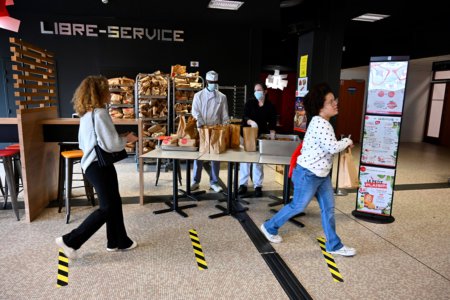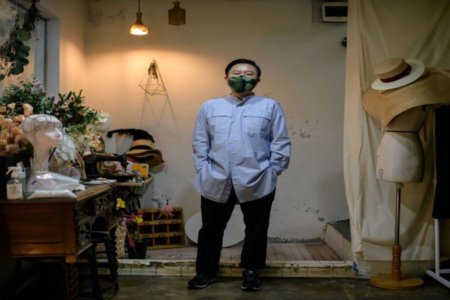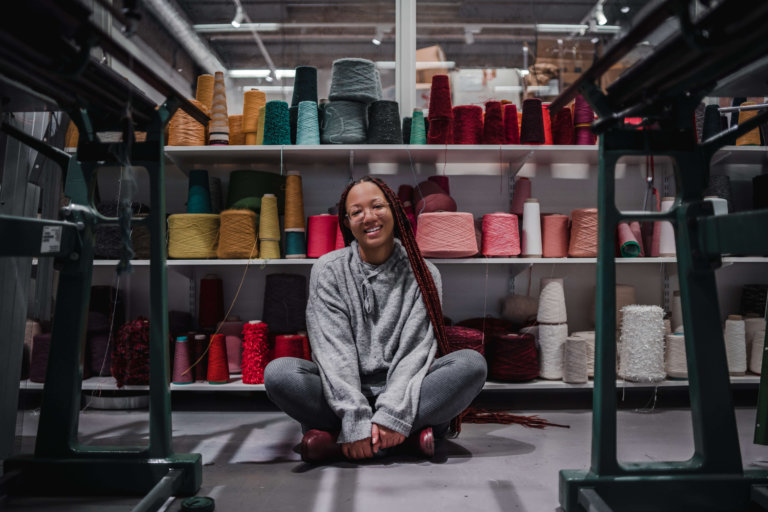
Growing up, Chelsea Grays was always encouraged to be creative. This stemmed from her mother who was an avid painter, which led to Grays picking up sketching in her childhood. As a young child, her mother not only had to look after herself, but also her younger brother — Grays’ uncle. This meant passing down clothes she would outgrow.
Her childhood would soon turn into an award-winning venture in fashion design. In 2018, Grays created a collection inspired by a neighbourhood in San Francisco she would walk through everyday on her way to school — an area known for high crime rates and a big homeless community. Using racial discrimination as her theme, she compared a person’s skin colour to the colour of a paper bag to determine social privileges. It won her a Geoffrey Beene Scholarship, a one-year exchange programme with École de la Chambre Syndicale to pursue a bachelor’s degree in fashion and apparel design. In her eyes, Paris offered a world of insight into the world fashion design where nowhere else could.

For Grays, learning about the fashion design world in Paris would give her insight nowhere else could. Source: Chelsea Grays
For her recent 27-piece unisex 2020 collection — “Fashion is Oversaturated” — Grays turned her attention to upcycling. Fashion, especially in France, which contributes an insane amount to global pollution. Prime minister Édouard Philippe’s office stated that more than 650 million euros worth of new consumer products were wasted every year. So Grays developed looks using recycled fabric, upcycled garments, and repurposed materials (i.e., bath rugs, bed covers, etc.).
We caught up with Grays to learn more about this, her plans to intern in Europe and how she wants to expand on her knowledge on how the fashion industry works.
What made you choose Paris for fashion design studies? What did you gain there that you couldn’t back at a local institution?
I chose Paris because of its beauty, and being a strong capital fashion it also has a strong influence around the world. I originally wanted to live in London, but Paris is the next best thing — so I snatched the opportunity when I could.
I learnt skills that apply to fashion of course, but most of the skills I learned outside of that were about adjusting, balance, and how to avoid my talents being taken advantage of. The skills I obtained were discipline, how to drape, how to manufacture, a new development process and most importantly, how to trust myself.
Is there a backstory for your love for fashion? I saw you also studied psychology previously, walk us through your inspiration to change to fashion design.
This is a great question! When I was younger, I would sketch and watch runway shows. I loved pairing clothes together, but sometimes I was mocked for my unique style of clothing, or the fact that I wanted to be a part of the fashion world.
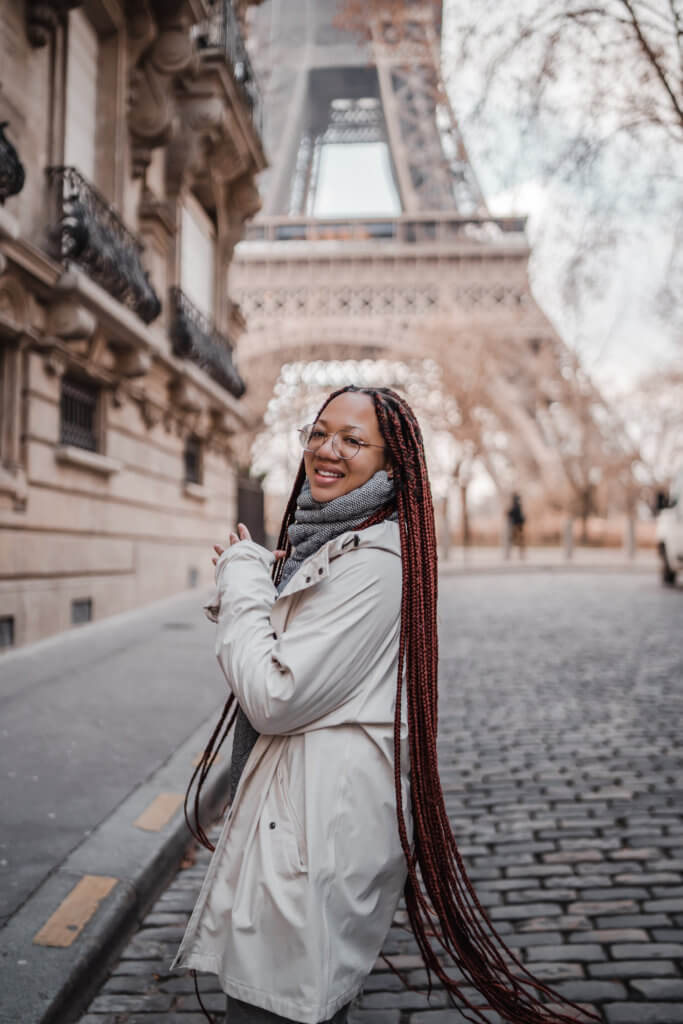
Paris not only strongly influences the world with its fashion trends, but is also a beautiful city that inspires creative minds. Source: Chelsea Grays
In high school, my friends always confided in me and I always had wanted to become a doctor when I was young. I thought I wanted to study psychology with a minor in childhood and development, and my desire was to become a marriage counsellor.
That fell apart when I learnt that marriage counselling is more about helping negotiate their way apart. At that point, my mind was already in the fashion industry and I decided to get my master’s in fashion design.
I came to know that the editors of magazines including “Vogue” and “Pantone” had psychological backgrounds, so it was inspirational to me that I still could apply everything I studied in psychology to the fashion world.
Tell us more about your career trajectory since graduating from École de la Chambre Syndicale de la Couture Parisienne.
I am overpowered with creativity, so I can’t sit still these days! I decided to continue to work on my brand, I may take opportunities if they interest me. I would love to design for another company, but I currently have tunnel vision trying to make sure my brand has an impact.
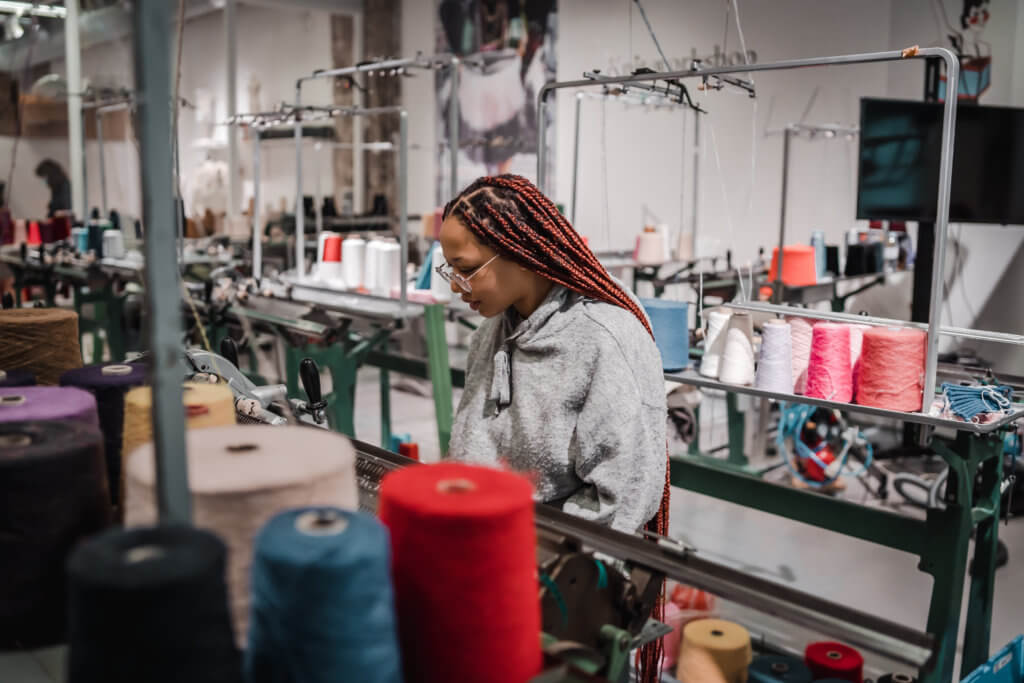
Grays has had a passion since young to sketch runways shows and pair clothes together. Source: Chelsea Grays
It’s in the beginning, so it takes a lot of work. It’s a compliment when people assume I have a whole team, but it’s basically just me. I’m putting all my energy into my brand at the moment, so that eventually I can have a team.
How do you use the knowledge and skills gained in fashion design in your current lifestyle?
The most influential piece of information that shows up in my present work — as cliche as it might sound — is to think outside the box. For instance, I made huge trousers and my teacher suggested adding zippers to make it trousers and a sweater.
Who would think of that? Being unconventional but understandable. It was more of a lesson rather than a skill. Protecting my intellectual property is extremely important and still something I’m learning how to navigate.
Currently, I am creating a new menswear collection by combining the process I learned in Paris and San Francisco. I’m always inspired by the world around me, I try to create change using clothing as the bridge.
What were the practical learning elements in fashion design?
Among the several different elements that contributed to the course, I currently use all elements when designing and creating my new collection. For instance, creativity is about visual appeal, things need to be understood without speaking.
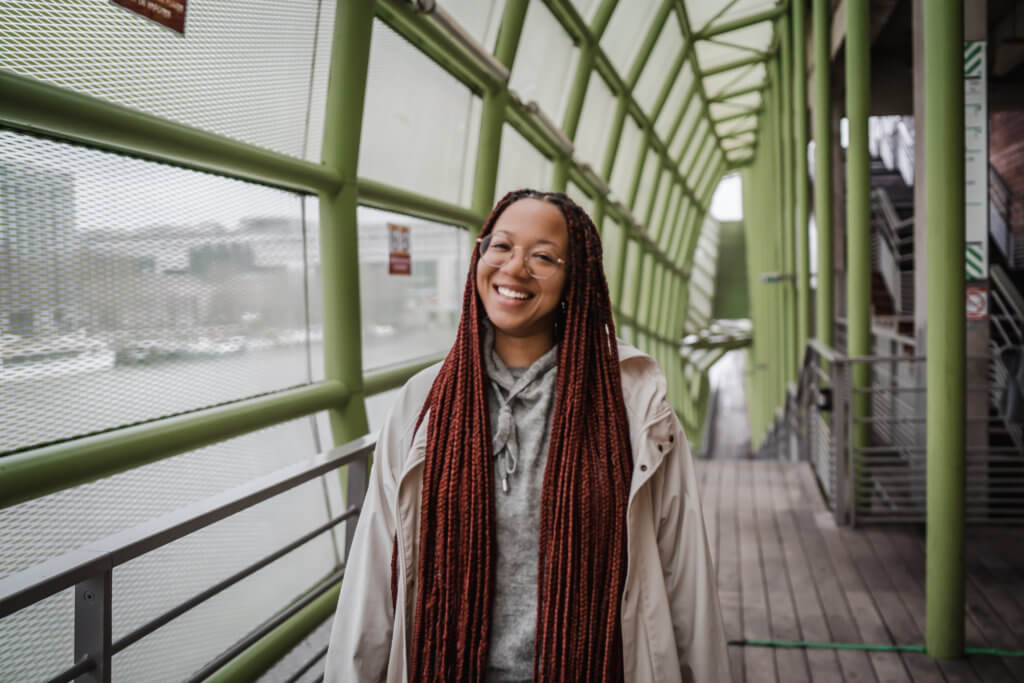
Empowered by creativity, sitting still is not on her agenda. Source: Chelsea Grays
Especially because I am in Paris, I’m still learning French there and there have been many times the teachers don’t understand what I’m saying. The work has to speak for itself, and so there should be a documentation of everything — from the reference to why you chose a certain thread, to a picture of your scraps on the floor.
This is something I have to keep in my mind because it’s natural for me to flow and get lost in the work. Sometimes I have to pause and remember to pull out my phone to snap a picture, so I’ll remember the whole process.
What skills or knowledge do you wish you learned more during uni?
I wish I took business classes and learned how to manage and build a brand. All the classes were geared towards creativity, which is perfect, but some designers are studying to build their brand rather than work for other designers, and that takes a broader perspective.
There is still a lot I don’t know about marketing, branding, networking, and so on. I have to do a lot of research on my own for everything to come full surface. I would love to work for a brand, but I don’t mind working for myself.
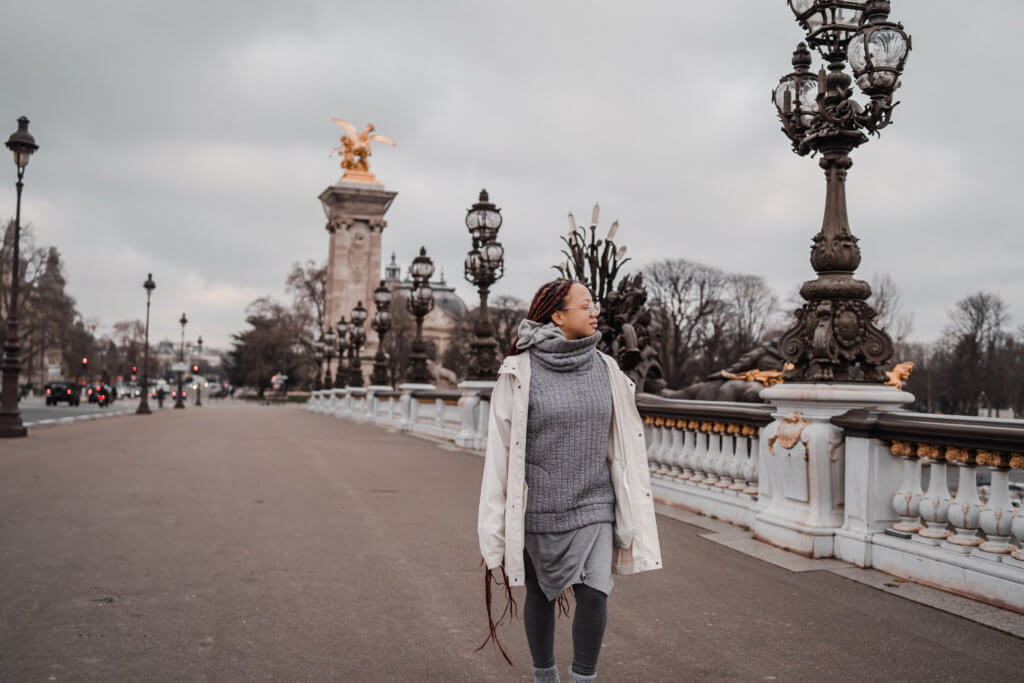
“Take advantage of every moment, be focused and don’t hold back,” is some of the advice Chelsea Grays has for international students. Source: Chelsea Grays
I have been focusing solely on building my brand to make sure my voice and point of view is really heard. I also would have learnt how to make knitwear because I’m in love with it, but I have no idea how to.
What advice do you have for students who are planning to enrol in the same course as you did?
Go for it! Take advantage of every moment, be focused and don’t hold back. Learn French, if you decide to study in France. This is probably one of the only times as a designer, you can do whatever you want freely, and get honest feedback. Several designers hold their opinions back because they’re afraid of outside opinions.
Although I disagree with this mindset, I understand it. School is truly a cushion to be free, you won’t get kicked out of school for going all out with your creative expression. Be confident, be direct, say everything that’s on your mind, ask all the questions and be persistent! Walk away ready to conquer the world!
View this post on Instagram
If you were given US$1 million, what would you do with it?
Firstly, I would find a way to invest to grow it and build a nonprofit. This is an idea I’ve had since I was young while studying psychology — sort of like a college campus but for men and women who experience domestic violence.
I would find a stable space so I can have an atelier to grow my brand, and create a scholarship programme to assist students much like myself, to study abroad. I think people grow the most when they experience life “outside their backyard”.
Lastly, I would pay my dues and respect to people who helped me along the way. I really want to do something extraordinary, beyond myself so I can be impactful on a global scale.








